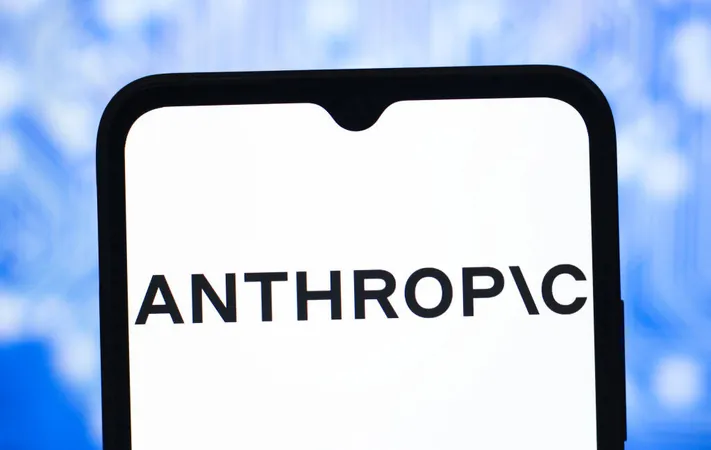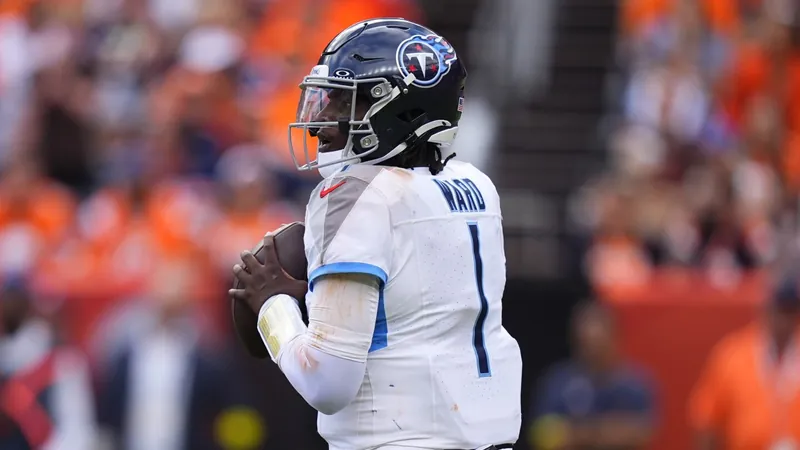
Judge Slams Anthropic's $1.5B Settlement: Is it a Win for Authors or a Legal Loophole?
2025-09-09
Author: Ying
A Major Legal Battle Over AI and Copyright
In a dramatic hearing on Monday, U.S. District Judge William Alsup condemned a proposed $1.5 billion settlement related to Anthropic's unlawful use of authors’ works to train its AI models. This case has turned into a legal battleground, where Anthropic could have faced damages exceeding a staggering $1 trillion after a class of around 7 million authors alleged their books were illegally downloaded.
Are Authors Getting Shortchanged?
Critics are voicing concerns that the settlement, covering less than 500,000 works, represents a meager payout relative to Anthropic's sky-high valuation of approximately $183 billion. Despite the financial settlement, Anthropic won’t even have to admit wrongdoing, while it hauls in billions based on those very same authors' creations. Just recently, the company raised a whopping $13 billion in funding—nearly tenfold the proposed payout.
Judge's Alarming Concerns
Judge Alsup expressed his discontent with how swiftly the deal was pushed forward, fearing it would be forced "down the throat of authors." He highlighted the chaotic nature of the agreement, pointing out unresolved issues with important documents like the Works List and the Class List—essential for determining who gets compensated and how much.
Settling for Less?
Denying preliminary approval, Alsup emphasized that the settlement wasn’t near complete and urged both parties—Anthropic and the authors’ lawyers—to rethink their strategy. The judge pointed out significant gaps, particularly regarding how payments would be processed for works with multiple claimants, amplifying his concern that unresolved legal disputes could plague courts for years.
Needs for Reform and Clarity
Alsup commanded a revised approach that mandates all copyright owners to opt in; if even one rights holder opts out, those works would be excluded from the settlement. He also insisted that disputes must be settled in state court, emphasizing these reforms to prevent future legal logjams.
What’s at Stake for Authors?
As the judge assessed the implications, he warned that authors could significantly lose out if they miss filing claims or payments, as often happens in class actions. Many times, the members of the class "get the shaft" once attorneys secure financial relief, leading to a lack of ongoing interest in their cases.
Overshadowed by Duplicates?
Currently, the settlement only accounts for about 465,000 works—a far cry from the initial class of 7 million. Challenges such as duplicate works, foreign editions, and unregistered titles largely explain the discrepancy. Authors are understandably anxious, as this deal could set a precedent for future AI-related cases, and lower payouts may become the norm.
The Authors Guild’s Stance
The Authors Guild argues that the Copyright Act should empower courts to issue much higher damages for willful infringement, but they opted for a smoother settlement route to bypass prolonged legal battles that could stretch for years. The Guild indicated that achieving a robust settlement sends an important message to the industry: piracy comes at a significant cost.
What Comes Next?
As the court prepares to finalize lists and procedures by mid-October, authors will soon have a chance to confirm if their works are included. The Guild plans to create a searchable database to assist authors in this process, assuring them that they will be notified if their claims get the green light for payment.
In conclusion, while the proposed settlement may seem like a lifeline for some authors, the true victor could be Anthropic if this perceived loophole allows them to dodge accountability for their AI training practices.


 Brasil (PT)
Brasil (PT)
 Canada (EN)
Canada (EN)
 Chile (ES)
Chile (ES)
 Česko (CS)
Česko (CS)
 대한민국 (KO)
대한민국 (KO)
 España (ES)
España (ES)
 France (FR)
France (FR)
 Hong Kong (EN)
Hong Kong (EN)
 Italia (IT)
Italia (IT)
 日本 (JA)
日本 (JA)
 Magyarország (HU)
Magyarország (HU)
 Norge (NO)
Norge (NO)
 Polska (PL)
Polska (PL)
 Schweiz (DE)
Schweiz (DE)
 Singapore (EN)
Singapore (EN)
 Sverige (SV)
Sverige (SV)
 Suomi (FI)
Suomi (FI)
 Türkiye (TR)
Türkiye (TR)
 الإمارات العربية المتحدة (AR)
الإمارات العربية المتحدة (AR)